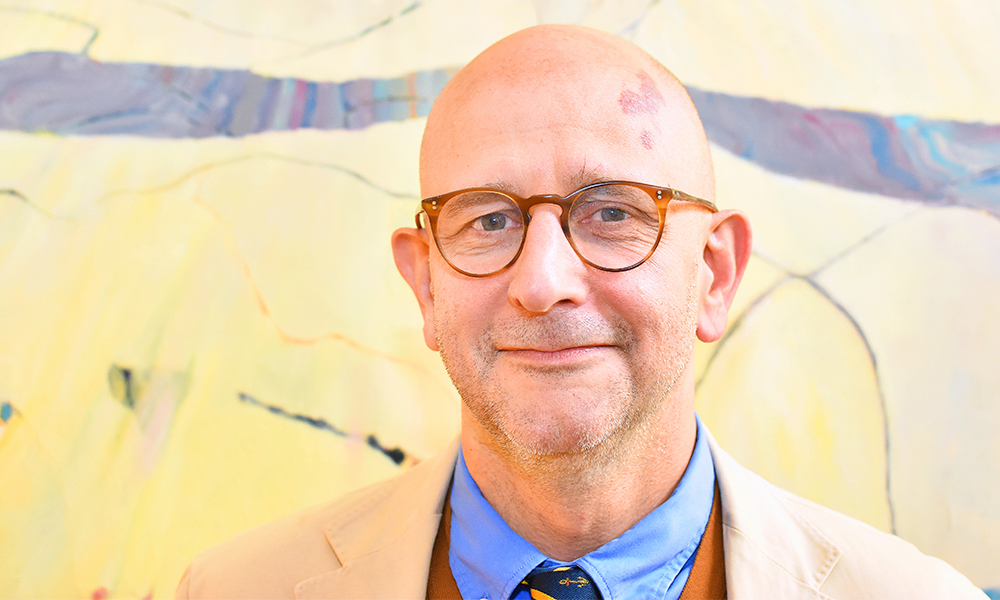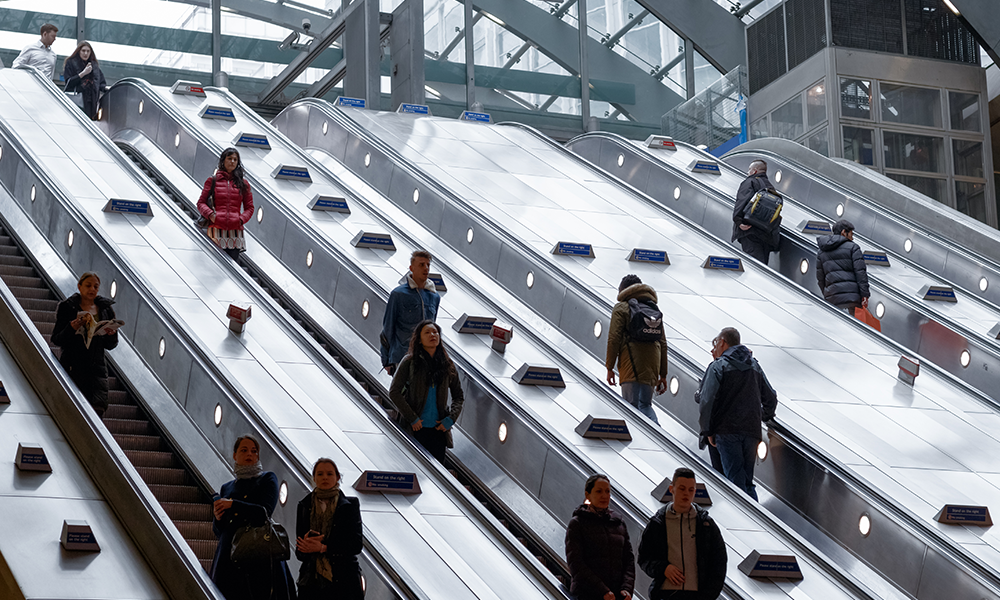Founding director Janos Verebes-Weisz on creating a flexible service for those with hectic schedules

Subscribe to our Wharf Whispers newsletter here
“If people really want to change, then there is hope,” said Janos Verebes-Weisz. “I strongly believe in that.
“Anybody who is fed up can benefit from thinking through what is between them and change – that process on its own is part of changing.”
There’s a warmth, kindness and curiosity to Janos. It’s in the timbre of his voice, the rhythm of his speech and the way he gently turns topics over in his mind to examine and explore them as we talk.
That’s unsurprising. The founding director of Leo Weisz Therapy has spent his life helping people – initially working as a paramedic and intensive care nurse in Hungary before moving to the UK in 2004.
As a person in therapy himself, he determined to train as a psychotherapist and found a place working in the NHS with offenders in a medium secure unit in Hackney.
There he spent seven years using group sessions to help those with personality disorders.
Since then he’s worked in the NHS in east London as well as in private practice and has spent time as a visiting lecturer, teaching the next generation of therapists at Queen Mary University and Greenwich University.
He founded community interest company the Community Psychotherapy Network (CPN) in Bethnal Green to offer accessible and affordable group therapy.
“Traditionally psychotherapy has a very strict structure – clients have a time when they must turn up,” said Janos.
“It’s usually a requirement. Through our work with CPN, even before the pandemic, we realised that there was a group of people who need a little bit more flexibility.
“They can afford therapy but, because they are working like mad, they cannot always get to the sessions.
“That’s why we created Leo Weisz. We specialise in long-term, in-depth therapy and that’s what we offer to people with speed and flexibility.
“When Covid came, it overwrote much of what we thought about what’s needed to do psychotherapy work effectively.
“This means if you have someone who is leading a business and struggling with an eating disorder, for example – a person whose hectic lifestyle makes it very difficult to attend sessions – we can still help them.
“When the pandemic came and we had to put everything online – life shows you that you can adapt.”
Thus Leo Weisz Therapy was created, with Janos teaming up with therapists Sarah Clark, Ivor McKay, Mayer Lindner and Adelaide O’Mahony to offer group and one-to-one sessions to both individuals and businesses.
The organisation is based in Bethnal Green, with access to premises in Canary Wharf in the pipeline.

“My background is in dealing with personality disorders, which we see as a developmental illness,” said Janos.
“Some people say it’s untreatable, but we know that’s absolutely not the case.
“With maturation and development, things can be much better – but it takes time and that’s why we work with clients long-term.
“The benefit of our approach is that we are not working to change habits – we’re promoting in-depth change.
“That’s the most difficult thing – there is often a lot between a person and the change they want to make.
“We have to ask how we can understand the resistance to it and then go towards the desired outcome of a client’s therapy.
“In that sense, more often than not, we find trauma inevitably comes up.
“Things that people have gone through will, one way or another, have influenced their development.
“As a result they suffer with different symptoms.
“Those might include anxiety, depression, an eating disorder, self harm, addiction or complex destructive or risky behaviour.
“Here we’re not working only to address those symptoms – it’s about what they are communicating.
“The phrase we like to use is ‘immature defence structure’.
“Often people are at a particular age or stage in their life and they didn’t get the right amount of support at a particular time.
“They may also have been directly traumatised.
“Then their development arrested and we try to pick up at that point and support them into a direction they would like to go.”

To that end, Janos and his colleagues aim to offer services that will fit in with a client’s life, while also working to address the issues they are experiencing.
“I think what’s unusual in this field is that we offer flexibility,” said Janos.
“Needless to say, of course, we’re also extremely confidential.
“One-to-one sessions will work for some people, while group therapy is also highly effective, because it puts people into context.
“It works as an analogue for the wider community.
“While many people experience fear when they wonder whether they will be getting time for their issues in this setting, it is actually training for the ego where we can place our problems beside those of others.
“People start finding words for their feelings when they experience commonality in a group.
“These words become a common experience and language that enables group participants to express themselves much faster than they would if they were on their own.
“Being in a group can be extremely freeing – they understand that they are not alone.
“In a group there are often people at different stages.
“Imagine, for example, someone who is suffering with bulimic attacks and then they’re sitting with someone who already left this kind of behaviour behind after years of therapy.
“Then they start talking about it – why they do it, what it means for them and how they can find words that express those things.
“Then we start to realise these are universal experiences and that we don’t have to act out these behaviours – we can verbalise them instead.”
Leo Weisz Therapy also stands ready to help businesses with an approach that aims to offer practical, beneficial results for their employees.
“In the corporate world you often have people working under enormous pressure and they need a release,” said Janos.
“We are always learning from our clients but we absolutely take a practical approach.
“For example, there will be elements of behavioural therapy that come up in group sessions.
“It’s a repetitive process. We talk about these developmental cycles and we identify symptoms, but it’s easy for people to regress too.
“Then we keep doing the work and change happens over time.
“It’s mind-blowing what can happen. I haven’t seen anyone change for the better in as little as three months – that’s because to do it, you have to reshape internal constructs, to tackle internal defence structures.
“People can be very fragile inside but they can be like medieval knights covered in very rigid armour that rejects closeness and flexibility.
“You can’t just remove the armour, you have to work to put muscles on the arms and legs so the person can gradually take it off piece by piece.
“Then, underneath they will be strong enough not to collapse without it.
“I’m always very moved when that happens – people come to us and make themselves vulnerable.
“It’s a privilege to work with them.”
Find out more about Leo Weisz Therapy’s services via this link
Read more: How artist Mark Taylor is capturing Canary Wharf and Docklands
Read Wharf Life’s e-edition here
Subscribe to our Wharf Whispers newsletter here
- Jon Massey is co-founder and editorial director of Wharf Life and writes about a wide range of subjects in Canary Wharf, Docklands and east London - contact via jon.massey@wharf-life.com




4 Replies to “Bethnal Green: How Leo Weisz Therapy offers rapid, in-depth help to clients”
Comments are closed.